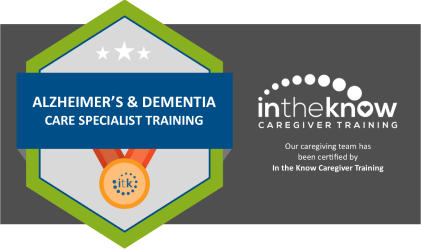Alzheimer’s disease progresses in several stages: preclinical, early (also called mild), middle (moderate), and late (severe). During the preclinical stage of Alzheimer’s disease, people seem to be symptom-free, but toxic changes are taking place in the brain. A person in the early stage of Alzheimer’s may exhibit the signs listed above. As Alzheimer’s disease progresses to the middle stage, memory loss and confusion grow worse, and people may have problems recognizing family and friends. As Alzheimer’s disease becomes more severe, people lose the ability to communicate. They may sleep more, lose weight, and have trouble swallowing. Eventually, they need total care.
Scientists do not yet fully understand what causes Alzheimer’s disease in most people. In early-onset Alzheimer’s, which occurs between a person’s 30s and mid-60s, there may be a genetic component. Late-onset Alzheimer’s, which usually develops in a person’s mid-60s, arises from a complex series of age-related brain changes that occur over decades. The causes probably include a mix of these changes, along with genetic, environmental, and lifestyle factors. These factors affect each person differently.
Currently, there is no definitive evidence about what can prevent Alzheimer’s disease or age-related cognitive decline. What we do know is that a healthy lifestyle—one that includes a healthy diet, physical activity, appropriate weight, and no smoking—can lower the risk of certain chronic diseases and boost overall health and well-being. Scientists are very interested in the possibility that a healthy lifestyle might delay, slow down, or even prevent Alzheimer’s. They are also studying the role of social activity and intellectual stimulation in Alzheimer’s disease risk.
Call Longevity Care today to get started with a free In-Home consultation 403.800.0858 – Alzheimer’s Society Calgary 403.290.0110






